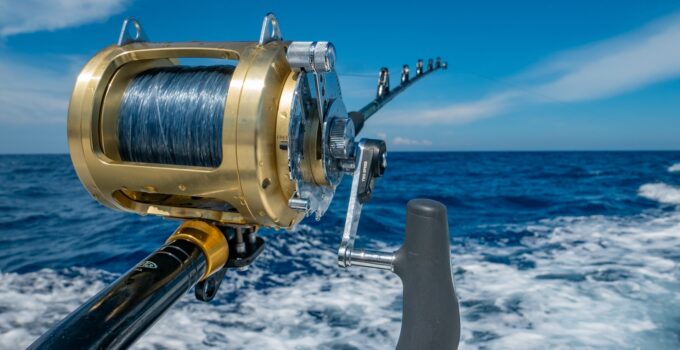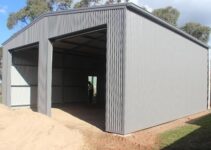Are you a fan of fishing? Considering that you’re reading this article we are going to assume that you are. Fishing is a sport, but it is beloved more among the amateurs than any other activity in this sport. Because of this, people often don’t know the basics about it. What most enthusiastic know is to swing their rod, leave it in the water and wait for fish to fall prey to them. In the mid-time, they dedicate their time to a few drinks and some rest. But, knowing the basics is vital for everyone involved with fishing. That’s what we’re going to give you in this article.
Have you ever wondered what is the difference between offshore and inshore fishing rods? If you haven’t this is the right time to do so. Of course, the answer lies below, so don’t worry about going to Google or Wikipedia. We got you covered. When you develop your fishing passion further you might be seeking different challenges in this domain. Finishing inshore and offshore are two different things. So, having a different types of rods is a necessity more than anything else.
Even if you’re not in the mood for our lessons, you probably already need to own both types of rods we mentioned here. Every true fisherman who intends of practicing both types of fishing needs them. So, are you any different? Probably not. If you want to skip our lessons and skip right to purchase that’s fine too. Maybe DestinInshoreFishing.com can be of help. We can be of help too. So, even if you’re not in the mood for some learning be a little patient and stick with us. Let’s see what makes the difference between these rods.
Inshore Fishing Rods
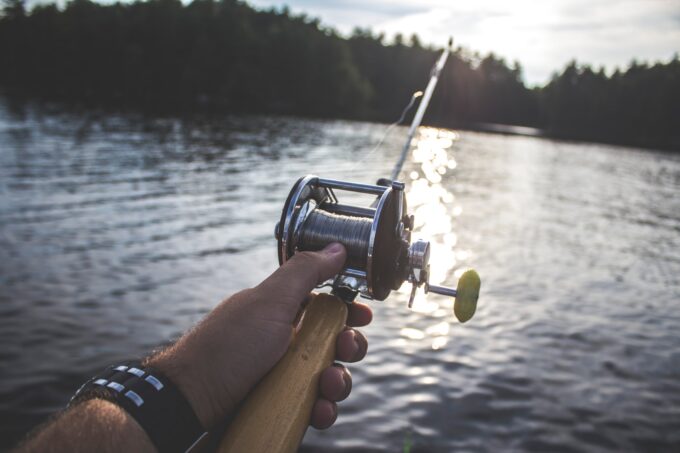
Source: unsplash.com
Inshore fishing is not too complicated. Selecting the rods isn’t that too. But, you need to know what you’re doing. Every purchase can be good if you know what you’re looking for. What you need to start with is the basic knowledge of fishing. Inshore refers to shallow waters not too far from the coast or even on land. When you know this, you know the place where to start. We are talking about the length of the rod. Also, do not forget about the action and the power. All three things matter. You can use shorter ones for prey that is close and that will give you power, but you’ll need longer ones if you want to drift further from the position you’re standing at.
As far as the power is concerned you’ll need a medium backbone lifting power. For inshore fishing, this is the right measure. You can use heavy and light, but in this department, the soft medium measure breaks all other deals. When it comes to action it refers to the pressure the tip will have when the prey is caught. It can be fast, medium, and slow. The one you select only on the location you choose and the fish you want to catch. Also, if you use artificial lures, fast is your best option. Furthermore, you should transfer your focus to the weight of the leader and the line. You don’t have to push too hard here as no more than 30 pounds is needed for the leader and up to 15 pounds for the line. For inshore fishing, this should prove to be more than enough.
As for the spinning reels you are good to go with a 2000-3000 series that come with somewhere between the 150-200 yards mark. With all of the above, you are set to go on an inshore fishing adventure. Now, let’s see what we have to say about offshore fishing. You’ll notice the difference in the requirements without a doubt.
Offshore Fishing Rods
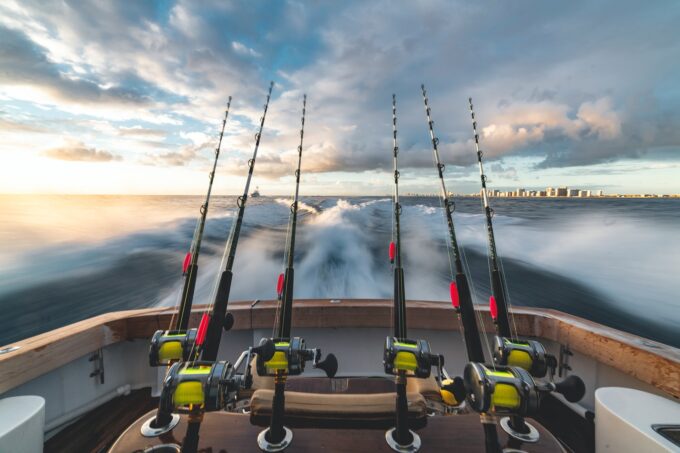
Source: unsplash.com
So, when you choose to do some offshore fishing you’re changing the landscape. What this means is that the rules change too. You’ll be further from the coast, and the waters you’ll be exploring are going to be much deeper than what you’re used to. This is why the rod game changes too. So, if you have some close-up battle with fish in mind, shorter rods are the option you’ll need. For a bit longer casting you’ll need longer rods. Logical s far, right? It is. And we will continue in that manner.
When it comes to power things change drastically in offshore fishing. As one could guess, the prey you’ll find further from the coast is quite bigger. This is why you need more power in your rods as the weight of fish you’ll be lifting is going to be quite larger if you reach success out on the open sea. Considering all of the above, you’ll be better off using shorter rods, with more power and low-speed reels when you’re deep fishing. The reason is simple. All of this combined gives you better chances of fighting the fish you’re hunting offshore. With a longer rod and a fast reel with less power, you won’t be able to handle tuna by any means.
Of course, these preferences change if you opt for hunting smaller fish. If this is your goal you’ll be choosing a smaller lure, and in that case, if you start arguing with smaller fish, you might handle it with a different type of equipment. When it comes to other equipment needed you to need to be careful to have it all prepared, or you might miss on some of the joy of fishing because you won’t be able to handle the fish properly. This is why it is essential to always have a fishing net with you, and also the pliers, long-nosed are ideal, scissors, knives, and of course the hook remover.
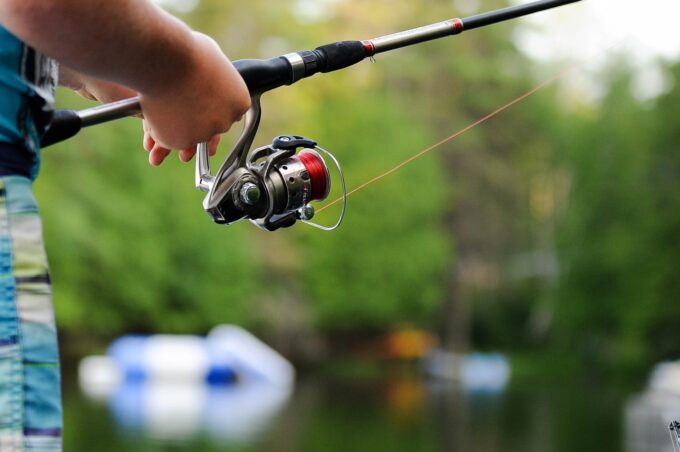
Source: unsplash.com
Bottom Line
As you can see, the difference between the rods you need for inshore and offshore fishing differ quite a lot. It all depends on the location you’re visiting and the type of fish you are going to hunt. Based on these two options you can adapt the type of rod you’ll be using. Luckily for all of you fishermen you can make various combinations and adjustments depending on the situation.

